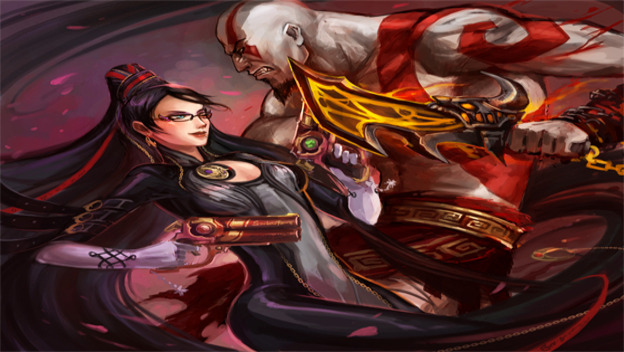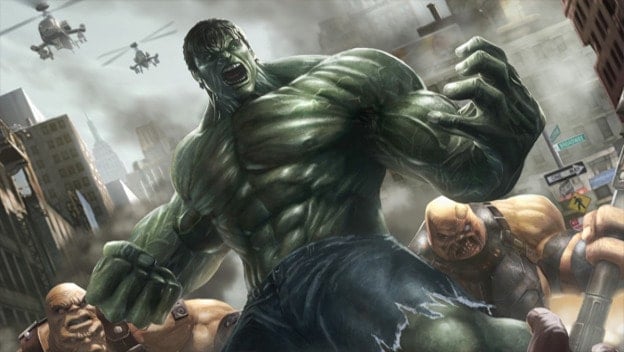Last month, Josh Engen wrote a piece that questioned the nature of sexism in the gaming industry . It poses the question as to whether men have it equally as bad as women on the exploitation front, showing up in their tight-fitting clothes with their rippling pectorals and washboard abs.
If you scroll down to the comments on that piece, you’ll see that I posted the first response, citing a logical fallacy known as False Equivalency. The thrust of False Equivalency is that the comparison drawn in an argument is not as even as it appears, in this case on the grounds that the heterosexual male perception of what is physically desirable for a male differs from the perspective of those who are actually sexually attracted to men.
This, too, raised some controversy. I want to thank EmK127 for providing a perspective outside the bounds of heteronormative experience, which brought to my mind another issue: what is sexism? The major complaint EmK127 raised with the False Equivalency flag wasn’t that the Adonis-like male physique is sexually appealing (though he asserted that, to him, this is a positive), but that it levels just as many unrealistic expectations
His argument is sound, in that respect. Populating media with airbrushed models, devoid of imperfections, with unrealistic and even unachievable physiques engenders self-esteem issues on all ends. It makes boys and girls who grow up inundated with these images question their own bodies and their worth as individuals, since they clearly don’t match up to the expectations of the Hollywood culture. In this, I have first-hand experience. I grew up heavyset, and it’s only recently (within the last couple of years) that I started eating healthier and getting enough exercise to counteract that. It sometimes scares me that this makes me happier, that I’m more comfortable in my body like this, and especially that I’m not yet satisfied. These scars run deep .
And while movies and magazines do much to formulate such expectations, video games have done their part as well. I wanted to be a martial artist because Street Fighter’s Ryu was a badass. That he has a six pack and bulging arm muscles in most of his depictions certainly contributed to a sense of inadequacy. I think the word “inadequacy” illustrates the difference, though. It’s the distinction between sexism and something else, something that is certainly tied to gender expectations but doesn’t fly under the same banner.
The exaggerated portrayals of men in video games can make a young man feel inadequate, which can include feeling sexually impotent. The most apparent male sex organ is rarely portrayed in any pointed manner, unlike female secondary sexual characteristics, but physical strength is still associated with virility, so this stands. That many of these male characters practically fall into sexual conquests is another tool of reinforcement. This is powerlessness by comparison, though. It’s a matter of seeing something and saying, “I am not like this and because I am unlike this, I am less than this.” Horrible, yes, but distinct from the attitude toward female characters.

Those who rail against the portrayals of women in video games are usually focused on the sexually exploitative nature of female character designs and the situations into which they are thrust. It isn’t a matter of “jealousy” or a desire to “live up” to the images onscreen. It’s a distaste for the fact that those who were involved in building the game seriously pictured women this way, that this is, when you get down to it, what these designers found to be defining traits of those with XX chromosomes.
That’s what caricature is, no? Take what stands out about someone or something and blow it out of proportion. Tremendous breasts, butts so round they’re almost spherical, thick lips, and clothes that reveal every curve and angle of them. Or, alternatively, square pectorals, symmetrically bump-mapped abs, tree trunk thighs, and no neck to speak of. If you think I’m joking about those abs, by the way, play Mortal Kombat on the Vita. The flat, in-game textures on them must have been bump-mapped on its console forebears.
This isn’t to say that either sort of exploitation is “better” or “more acceptable,” but one falls under sexism—a perception of power imbalance between genders—while another is perhaps another form of discrimination, and certainly a form of gender stereotyping.
Of course, sexism in the gaming industry extends beyond the characters on the screen. Behind the scenes, development environments are mostly comprised of heterosexual men who have come of age in a culture that has bombarded them with these sorts of images and gender expectations since their youngest and most impressionable years. That the audience they serve has grown increasingly diverse seems to have been lost on them, as they continue to indulge their sexual proclivities and power fantasies with only the occasional, almost token, effort to change things up. The stories of their hostile or dismissive attitudes toward female coworkers would make even most academics blush (and, yes, academia is very much a men’s club to this day).
At this point, though, the imbalance on hand is very much a part of the gaming community’s conversation, and that is enough to give me hope. That said, let’s keep it respectful, okay? Please?
 | By Shelby Reiches Lead Contributor Date: February 8, 2013 |
